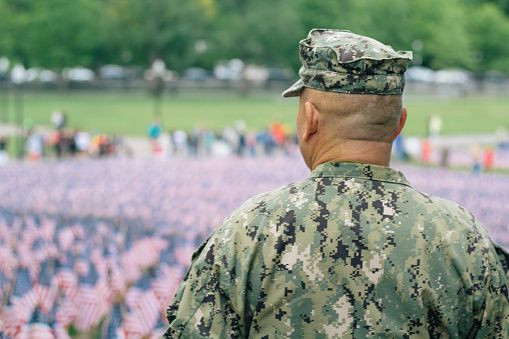History Of Suicide Attempts In Army Units Could Lead To More: Study

The risk of a soldier attempting suicide increases as the number of previous suicide attempts in that unit increases, according to a new study by the U.S. Army's Study to Assess Risk and Resilience in Service Members research project or STARRS.
The study included data collected from 9,512 enlisted soldiers who had attempted suicide between 2004 and 2009, documented in administrative and medical records and is reportedly the country’s largest study of mental health risk and resilience among military personnel.
However, the results are quite worrisome, with the findings revealing that the risk of someone from a unit attempting suicide in a unit with at least one suicide attempt in the past year was 18.2 percent.
Read: Why Do More Men Than Women Die By Suicide In The United States?
The researchers said that it was not clear whether these findings reflect a contagion-like effect ( a spread of shock due to a previous suicide), high levels of stress inside specific units or something else entirely.
They added that nearly half of veterans reported knowing someone who died by suicide, with 65% of those knowing more than 1 person who had died (Army units can include as many as 600 soldiers).
Also, soldiers in a unit with five or more suicide attempts in the past year had more than twice the odds of suicide attempt than soldiers in a unit with no previous suicide attempts.
The study also pointed out that past year unit suicides were associated with risk of newer attempts regardless of occupation or unit size.
Among combat arms and other occupations, the risk of suicide attempts was twice as likely among those in units with at least 5 past-year attempts as opposed to units with none. That increased risk remained high even after adjusting for each soldier's socio-demographic factors, age, time in service, deployment status, occupation, and unit size, it found.
Read: Teen Suicide Prevention: Signs That Could Show Tendencies In Young People To Kill Themselves
Dr. Robert Ursano, the lead author of the new study and professor of psychiatry and neuroscience and director of the Center for the Study of Traumatic Stress at the Department of Defense's Uniformed Services University, told CNN: "Historically, you were protected from suicide when you went in the Army. Rates of suicide were about half of those in the civilian population, and around 2009, they increased to above that of the civilian population and they remained high since then. This is an important part of trying to understand that story.”
While suicides among active members were not very frequent, previous research revealed that this doubled between 2001 and 2011, a period in which the Iraq and Afghanistan wars happened. During 2001, nine out of every 100,000 soldiers on duty killed themselves, while, during 2011, the suicide rate was nearly 23 per 100,000, according to the American Foundation for Suicide Prevention.
The study acknowledges that this data may not be generalized to include the Iraq and Afghanistan wars or to other U.S. military conflicts apart from being subject to diagnostic or coding errors.
© Copyright IBTimes 2025. All rights reserved.





















